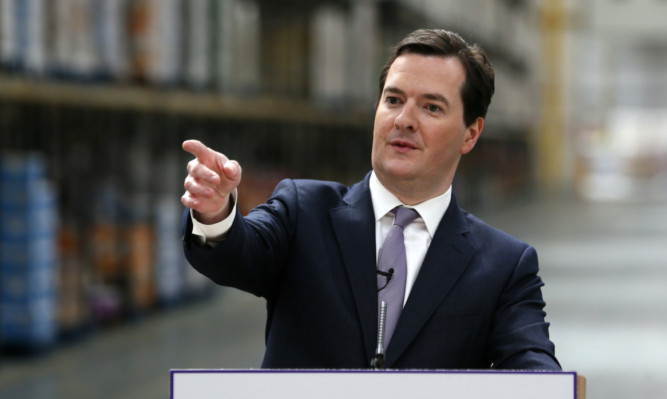Chancellor George Osborne has hit back at critics of the Government’s controversial welfare reforms, accusing them of talking “ill-informed rubbish”.
In the face of growing pressure from churches, charities and opposition parties, Mr Osborne said suggestions the changes marked the end of the welfare state were “shrill, headline-seeking nonsense”.
Speaking at a supermarket distribution centre in Kent, the chancellor warned critics they were “out of touch” with ordinary families whose taxes paid for the benefits system. Labour, however, said millions of low and middle-income families were now paying the price for the failure of the Government’s economic policies.
Mr Osborne insisted he was “proud” of the action the Government was taking to inject “common sense” into the system and control the ballooning welfare budget.
“Those who campaign against a cap on benefits for families who aren’t working are completely out of touch with how the millions of working families, who pay the taxes to fund these benefits, feel about this,” he said.
“With all our welfare changes, we’re simply asking people on benefits to make some of the same choices working families have to make every day.”
The chancellor added: “In recent days we have heard a lot of, frankly, ill-informed rubbish about these welfare reforms. Some have said it’s the end of the welfare state.
“That is shrill, headline-seeking nonsense. I will tell you what is true. Taxpayers don’t think the welfare state works properly any more.”
His speech came as a raft of changes was coming into force including the so-called bedroom tax.
Shadow chancellor Ed Balls said the average family was now £891 a year worse off as a result of the tax and benefit changes made by the coalition since it came to power in 2010, according to figures from the Institute of Fiscal Studies.
He said: “The benefits bill is rising under this Government because our economy is flatlining, inflation is rising and unemployment is high. The best way to get the benefits bill down is to get our economy growing strongly and get people back to work.”
